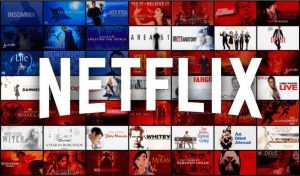Introduction
With the rapid advancement of technology, the way we consume media has drastically changed. Streaming services have become the new norm, revolutionizing the entertainment industry. Among the various streaming platforms available, Netflix has undoubtedly dominated the market for many years. However, in recent times, there has been a growing trend of people cancelling their Netflix subscriptions. This begs the question, why are people cancelling Netflix?
The cancellation of Netflix subscriptions can be attributed to various factors, including the lack of content variety, price increases, the quality of content, competition from other streaming services, technical issues and customer support, controversial programming choices, advertisements and product placements, and the absence of an offline viewing option.
In this article, we will delve into each of these reasons, shedding light on the factors that have led to the cancellation of Netflix subscriptions by a significant number of individuals. By understanding these factors, we can gain insights into the challenges faced by Netflix and the evolving preferences of viewers in today’s media landscape.
It is important to note that the cancellation of Netflix subscriptions is not indicative of the streaming giant’s demise. Netflix still boasts a vast subscriber base and continues to produce a plethora of popular shows and movies. However, the emergence of new competitors and the changing expectations of viewers have caused some to reevaluate their subscription choices.
Now, let’s explore in more detail the reasons why people are cancelling their Netflix subscriptions, beginning with the lack of content variety.
Lack of Content Variety
One of the primary reasons why people are cancelling their Netflix subscriptions is the lack of content variety. While Netflix initially gained popularity for its vast library of movies and TV shows, the streaming service has experienced a shift in its content strategy.
In recent years, Netflix has been focusing more on producing original content rather than acquiring licensed content from other studios. While this approach has resulted in some critically acclaimed shows and movies, it has also led to a decrease in the variety of content available to subscribers.
Subscribers have expressed their frustration over the limited selection of movies and TV shows on Netflix. With the growing number of streaming services in the market, viewers now have access to a wider range of content on platforms like Amazon Prime Video, Hulu, and Disney+. These competitors offer a diverse selection of movies, TV shows, and exclusive content that can’t be found on Netflix.
Furthermore, Netflix’s focus on original content has also led to the cancellation of beloved shows that were not performing as well as expected. This sudden removal of fan-favorite series has disappointed many subscribers and contributed to their decision to cancel their subscriptions.
Another aspect of the lack of content variety is the scarcity of certain genres or niche content. While Netflix offers a diverse range of genres, some viewers have expressed their desire for more specific categories, such as foreign films, documentaries, or classic movies. The limited availability of these genres has prompted some subscribers to seek alternative streaming platforms that cater better to their specific interests.
In summary, the lack of content variety is a significant factor contributing to the cancellation of Netflix subscriptions. The shift towards producing original content has resulted in a decrease in the selection of licensed movies and TV shows. The emergence of competitors offering diverse content options has also played a role in the decision of viewers to seek alternatives to Netflix. To retain subscribers, Netflix will need to address these concerns and expand its content library to cater to a wider range of tastes and interests.
Price Increase
Another significant factor contributing to people cancelling their Netflix subscriptions is the price increase. Over the years, Netflix has implemented several price hikes, causing dissatisfaction among subscribers.
When Netflix first launched its streaming service, it offered a compelling value proposition with affordable monthly subscriptions. However, as the platform grew in popularity and started investing heavily in original content, the cost of producing and licensing shows and movies increased. To offset these expenses, Netflix gradually raised its prices.
While price increases are a common business practice, the frequency and magnitude of Netflix’s price hikes have irked many subscribers. Some users have voiced their displeasure online, expressing their frustration at having to pay more for a service that they believe does not justify the added cost.
The price hike issue became more pronounced when other streaming services entered the market at lower price points. Platforms like Disney+ and Apple TV+ offered competitive pricing, compelling some Netflix subscribers to switch to these more affordable options.
Furthermore, the growing number of streaming platforms available has led to subscription fatigue. With multiple subscriptions, the overall cost of streaming services can quickly add up, making it difficult for viewers to justify the expense of maintaining a Netflix subscription alongside other services.
It is worth noting that Netflix has introduced various subscription plans to accommodate different budgets, but for some users, even the basic plan has become too expensive compared to the alternatives.
In summary, the price increase is a significant factor leading to the cancellation of Netflix subscriptions. Subscribers have expressed their dissatisfaction with the frequency and magnitude of price hikes, especially when compared to lower-cost alternatives. To retain subscribers, Netflix may need to reevaluate its pricing strategy and strike a balance between covering costs and providing good value for money.
Quality of Content
The quality of content is another critical factor that influences people’s decision to cancel their Netflix subscriptions. While Netflix has produced numerous successful and acclaimed shows and movies, there have been instances where the quality of content has come into question.
As the streaming industry has become increasingly competitive, the demand for exceptional and compelling content has skyrocketed. Unfortunately, not all Netflix originals have lived up to viewers’ expectations. Some subscribers have expressed disappointment with certain shows or movies, citing issues such as weak storytelling, poor character development, or lackluster production value.
Moreover, with the sheer volume of content being produced by Netflix, maintaining consistent quality throughout all their productions can be challenging. While some shows like “Stranger Things” and “Ozark” have received critical acclaim, others have failed to resonate with audiences, leading to dissatisfaction among subscribers.
Additionally, some viewers have noted a shift in the content direction of Netflix. While the platform was initially known for its edgy and diverse programming, it has been accused of playing it safe with generic and formulaic content in recent years. This perceived lack of innovation and risk-taking has led some subscribers to explore other streaming services that offer more fresh and daring content.
Another aspect of the quality of content issue is the international offerings on Netflix. While the platform has made strides in featuring content from different regions across the globe, some subscribers feel that there is a lack of diversity in the international titles available. This has prompted some viewers to look for alternative streaming platforms that offer a more extensive selection of foreign language films and shows.
In summary, the perceived quality of content plays a significant role in people cancelling their Netflix subscriptions. While the streaming giant has had its fair share of successful shows and movies, not all of its original content has achieved the same level of acclaim. The demand for innovative and high-quality programming continues to grow, and Netflix will need to address these concerns to retain subscribers.
Competition from Other Streaming Services
The rise of other streaming services has presented strong competition to Netflix and has contributed to the cancellation of Netflix subscriptions by some viewers. With the entrance of platforms like Amazon Prime Video, Hulu, Disney+, and HBO Max, subscribers now have a plethora of options to choose from.
One of the factors that attract viewers to these competing platforms is their exclusive content. Each streaming service strives to offer unique and appealing shows and movies that can’t be found elsewhere. For example, Disney+ has drawn in a massive audience with its extensive catalog of beloved Disney and Marvel content, while HBO Max has gained attention with its collection of popular HBO series and exclusive Warner Bros. films.
The presence of these new streaming services has created a fragmented streaming landscape, where subscribers need to decide which platforms are worth their investment. With limited budgets and a desire for quality content, some viewers have chosen to cancel their Netflix subscriptions to switch to a different streaming service that better aligns with their interests.
Another aspect of the competition is the price point offered by rival platforms. Several streaming services have entered the market with lower subscription fees, which can be an attractive incentive for subscribers looking to cut costs. This price advantage, coupled with the appeal of unique content, has led to the migration of some Netflix subscribers to these more cost-effective alternatives.
Furthermore, the exclusivity of certain shows or franchises has become a deciding factor for many viewers. For example, if a highly anticipated series is only available on a specific platform, it may sway subscribers to temporarily cancel their Netflix subscriptions and switch to the service that offers the desired content. This constant shifting of subscriptions has become more common as viewers look for the best value and content offerings among the various streaming options.
In summary, the competition from other streaming services has played a significant role in the cancellation of Netflix subscriptions. The allure of exclusive content, competitive pricing, and the desire to explore diverse streaming options have prompted some viewers to switch allegiance to rival platforms. To remain competitive, Netflix will need to continue investing in compelling original content and find ways to differentiate itself from the ever-growing number of competitors.
Technical Issues and Customer Support
Technical issues and customer support problems are additional factors contributing to the cancellation of Netflix subscriptions. While Netflix is a widely popular streaming service, it is not immune to technical glitches that can frustrate subscribers.
One of the most common technical issues reported by users is buffering or playback problems. These issues can disrupt the viewing experience and make it challenging to enjoy shows and movies seamlessly. These technical glitches can occur due to various factors, including internet connection problems, server issues, or compatibility conflicts with devices. For some viewers, persistent technical issues can be a deal-breaker, leading them to cancel their Netflix subscriptions.
Moreover, the customer support experience provided by Netflix has also been a point of contention for some subscribers. When users encounter technical issues or have questions, they may reach out to customer support for assistance. However, some users have reported difficulties in getting timely and effective responses from Netflix’s customer support team. Long response times, generic automated replies, or unsatisfactory solutions can leave subscribers feeling unheard and frustrated.
Additionally, navigating and understanding the various features and settings on the Netflix platform can sometimes be confusing. Users may require assistance in customizing their viewing preferences, managing profiles, or understanding billing processes. Inadequate or confusing support documentation can further compound these frustrations and lead to users seeking alternative streaming services with better customer support experiences.
It’s worth noting that while technical issues and customer support problems are not exclusive to Netflix, the competition in the streaming industry has raised the bar for seamless and satisfactory user experiences. Subscribers now have higher expectations for reliable streaming platforms with responsive and helpful customer support.
In summary, technical issues and customer support problems have become a contributing factor for the cancellation of Netflix subscriptions. Buffering and playback issues, coupled with unsatisfactory customer support experiences, can lead to frustration and prompt viewers to switch to alternative streaming services that offer better technical performance and support. To retain subscribers, Netflix needs to prioritize improving its technical infrastructure and ensuring prompt and effective customer support.
Controversial Programming Choices
Controversial programming choices have become a divisive factor leading some viewers to cancel their Netflix subscriptions. As a streaming platform that aims to cater to diverse audiences, Netflix occasionally produces content that sparks controversy and attracts both praise and criticism.
One of the most prominent examples of controversial programming choices is when Netflix delves into sensitive subject matters or explores themes that are deemed objectionable by certain groups. This can include graphic violence, explicit sexual content, or the portrayal of controversial ideologies. While such content may aim to push boundaries and generate critical conversations, it can alienate a portion of the subscriber base who find such programming offensive or against their personal beliefs.
Furthermore, controversial casting choices or storylines that are perceived as culturally insensitive or misrepresentative can also lead to the cancellation of Netflix subscriptions. In a time where representation and inclusivity are crucial for many viewers, any missteps in this area can result in backlash and the decision to seek alternative streaming platforms that prioritize these values.
Another aspect of controversial programming choices pertains to documentaries or docuseries that tackle sensitive topics or individuals. The portrayal of real-life events or the spotlighting of controversial figures can be met with varying responses from subscribers. While some viewers appreciate the in-depth exploration and thought-provoking nature of these programs, others may find them biased, manipulative, or even offensive.
It is essential to recognize that Netflix faces a delicate balancing act. On one hand, the platform aims to offer diverse content that caters to a wide range of interests and perspectives. On the other hand, they must navigate the fine line between creative freedom and responsible storytelling to avoid alienating viewers or causing undue harm.
In summary, controversial programming choices have played a role in the cancellation of Netflix subscriptions. Content that is deemed offensive, culturally insensitive, or misrepresentative can lead to frustration and a loss of trust from certain subscribers. Striking a balance between creative expression and responsible storytelling will be crucial for Netflix to retain its diverse audience and address the concerns raised by controversial programming choices.
Advertisements and Product Placements
Advertisements and product placements within Netflix’s content have become a source of frustration for some subscribers, leading to the cancellation of their subscriptions. While Netflix is primarily known for its ad-free streaming experience, the inclusion of advertisements and product placements has raised concerns among viewers.
One of the main appeals of Netflix was the absence of traditional commercials interrupting the viewing experience. However, in recent years, there have been instances where subscribers have reported encountering promotional advertisements or trailers for other Netflix shows or movies before the content they intended to watch. This departure from the ad-free experience has disappointed some users who were drawn to Netflix specifically for its uninterrupted streaming experience.
Another aspect that has caused dissatisfaction is the integration of product placements within Netflix’s original content. Product placements involve featuring and promoting specific brands or products within TV shows and movies. While product placements are not exclusive to Netflix and are a common practice in the entertainment industry, if they are too blatant or intrusive, they can disrupt the immersion and authenticity of the viewing experience.
For instance, when a show or movie heavily promotes a particular brand or showcases its products in a way that feels forced or unnatural, it can be perceived as disruptive advertising and dilute the quality of the content. This can leave viewers feeling like they are being subjected to stealthy marketing strategies and can undermine the integrity of the storytelling.
Additionally, some subscribers may have concerns about the potential influence that advertisers can have on the content itself. If brands or advertisers start to exert significant control over the shows or movies produced by Netflix, it may compromise artistic freedom and result in a diluted creative vision.
It is worth mentioning that not all subscribers are equally bothered by advertisements or product placements. Some individuals may see them as a necessary trade-off to support the production and funding of high-quality content. Furthermore, Netflix has largely maintained a limited presence of advertisements and discreet product placements in comparison to traditional broadcast television.
In summary, advertisements and product placements within Netflix’s content have led to cancellation of subscriptions for some viewers. The inclusion of promotional advertisements and intrusive product placements can disrupt the ad-free streaming experience and compromise the authenticity of storytelling. Balancing the need for revenue generation with maintaining an enjoyable and uninterrupted viewing experience will be crucial for Netflix to address the concerns raised by advertisements and product placements.
Lack of Offline Viewing Option
One of the factors that has contributed to people cancelling their Netflix subscriptions is the lack of an offline viewing option. While streaming services provide convenience and instant access to a vast library of content, the inability to download and watch shows or movies offline can be a significant inconvenience for some subscribers.
Offline viewing is particularly important for individuals who travel frequently or have limited access to a stable internet connection. The ability to download content and watch it offline allows viewers to enjoy their favorite shows and movies during flights, commutes, or in areas with unreliable or expensive internet access.
Competing streaming services like Amazon Prime Video and Disney+ offer offline viewing options, which have attracted subscribers who prioritize this feature. The absence of this functionality on Netflix has led some viewers to cancel their subscriptions in favor of alternative platforms that provide the flexibility and convenience of offline viewing.
Furthermore, the lack of an offline viewing option can also deter potential subscribers from joining Netflix, especially in regions where internet access is limited or prohibitively expensive. For individuals with data caps or slow internet speeds, streaming content in real-time can quickly deplete their data allowances or lead to constant buffering. An offline viewing option would allow these individuals to download content during periods of faster or more affordable internet access and watch it at their convenience.
It is important to acknowledge that implementing an offline viewing feature comes with its own set of challenges. Digital rights management, content licensing agreements, and storage limitations are a few of the considerations that streaming platforms must address when implementing offline viewing functionality. However, as the demand for offline viewing continues to grow, it becomes increasingly vital for Netflix to explore ways to overcome these obstacles and provide this feature to its subscribers.
In summary, the lack of an offline viewing option is a significant factor leading to the cancellation of Netflix subscriptions. Subscribers who desire the flexibility and convenience of watching content offline may switch to platforms that offer this feature. To remain competitive and meet the evolving needs of subscribers, Netflix should consider implementing an offline viewing option for its users.
Conclusion
As the streaming landscape continues to evolve, various factors have contributed to the cancellation of Netflix subscriptions. The lack of content variety, price increases, the quality of content, competition from other streaming services, technical issues and customer support problems, controversial programming choices, advertisements and product placements, and the absence of an offline viewing option have all played a role in viewers reevaluating their subscription choices.
Netflix, as a leading streaming platform, faces the challenge of retaining subscribers in an increasingly competitive market. While it still maintains a vast subscriber base and produces popular shows and movies, the emergence of new competitors offering diverse content options has led some subscribers to explore alternative streaming services.
Moving forward, it will be essential for Netflix to address these concerns and adapt to the changing preferences of viewers. Expanding the variety of content, implementing fair pricing strategies, enhancing content quality, improving technical performance and customer support, making thoughtful programming choices, minimizing intrusive advertisements and product placements, and considering an offline viewing option will be crucial steps for Netflix to retain and attract subscribers.
Ultimately, the decision to cancel a Netflix subscription is a personal one, influenced by individual preferences, needs, and experiences. While some subscribers may find an alternative streaming service that better aligns with their specific interests, others may continue to enjoy the content and features provided by Netflix.
As the streaming industry continues to evolve, it will be interesting to see how Netflix and other platforms adapt and innovate to meet the ever-changing demands of viewers. The competition amongst streaming services ultimately benefits consumers, as it drives improvements in content quality, user experience, and value for money.
In conclusion, the cancellation of Netflix subscriptions can be attributed to a combination of factors, ranging from content variety to technical issues and competition from other platforms. By addressing these concerns and continuously striving to provide a high-quality and user-centric streaming experience, Netflix can endeavor to retain its position as one of the leading players in the streaming industry.

























